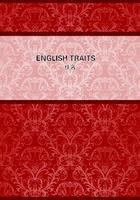
第22章
They have tilled, builded, forged, spun, and woven. They have made the island a thoroughfare; and London a shop, a law-court, a record-office, and scientific bureau, inviting to strangers; a sanctuary to refugees of every political and religious opinion; and such a city, that almost every active man, in any nation, finds himself, at one time or other, forced to visit it.
In every path of practical activity, they have gone even with the best. There is no secret of war, in which they have not shown mastery. The steam-chamber of Watt, the locomotive of Stephenson, the cotton-mule of Roberts, perform the labor of the world. There is no department of literature, of science, or of useful art, in which they have not produced a first-rate book. It is England, whose opinion is waited for on the merit of a new invention, an improved science. And in the complications of the trade and politics of their vast empire, they have been equal to every exigency, with counsel and with conduct. Is it their luck, or is it in the chambers of their brain, -- it is their commercial advantage, that whatever light appears in better method or happy invention, breaks out _in their race_. They are a family to which a destiny attaches, and the Banshee has sworn that a male heir shall never be wanting. They have a wealth of men to fill important posts, and the vigilance of party criticism insures the selection of a competent person.
A proof of the energy of the British people, is the highly artificial construction of the whole fabric. The climate and geography, I said, were factitious, as if the hands of man had arranged the conditions. The same character pervades the whole kingdom. Bacon said, "Rome was a state not subject to paradoxes;"but England subsists by antagonisms and contradictions. The foundations of its greatness are the rolling waves; and, from first to last, it is a museum of anomalies. This foggy and rainy country furnishes the world with astronomical observations. Its short rivers do not afford water-power, but the land shakes under the thunder of the mills. There is no gold mine of any importance, but there is more gold in England than in all other countries. It is too far north for the culture of the vine, but the wines of all countries are in its docks. The French Comte de Lauraguais said, "no fruit ripens in England but a baked apple"; but oranges and pine-apples are as cheap in London as in the Mediterranean. The Mark-Lane Express, or the Custom House Returns bear out to the letter the vaunt of Pope, "Let India boast her palms, nor envy we The weeping amber, nor the spicy tree, While, by our oaks, those precious loads are borne, And realms commanded which those trees adorn."The native cattle are extinct, but the island is full of artificial breeds. The agriculturist Bakewell, created sheep and cows and horses to order, and breeds in which every thing was omitted but what is economical. The cow is sacrificed to her bag, the ox to his surloin. Stall-feeding makes sperm-mills of the cattle, and converts the stable to a chemical factory. The rivers, lakes and ponds, too much fished, or obstructed by factories, are artificially filled with the eggs of salmon, turbot and herring.
Chat Moss and the fens of Lincolnshire and Cambridgeshire are unhealthy and too barren to pay rent. By cylindrical tiles, and guttapercha tubes, five millions of acres of bad land have been drained and put on equality with the best, for rape-culture and grass. The climate too, which was already believed to have become milder and drier by the enormous consumption of coal, is so far reached by this new action, that fogs and storms are said to disappear. In due course, all England will be drained, and rise a second time out of the waters. The latest step was to call in the aid of steam to agriculture. Steam is almost an Englishman. I do not know but they will send him to Parliament, next, to make laws.
He weaves, forges, saws, pounds, fans, and now he must pump, grind, dig, and plough for the farmer. The markets created by the manufacturing population have erected agriculture into a great thriving and spending industry. The value of the houses in Britain is equal to the value of the soil. Artificial aids of all kinds are cheaper than the natural resources. No man can afford to walk, when the parliamentary-train carries him for a penny a mile. Gas-burners are cheaper than daylight in numberless floors in the cities. All the houses in London buy their water. The English trade does not exist for the exportation of native products, but on its manufactures, or the making well every thing which is ill made elsewhere. They make ponchos for the Mexican, bandannas for the Hindoo, ginseng for the Chinese, beads for the Indian, laces for the Flemings, telescopes for astronomers, cannons for kings.
The Board of Trade caused the best models of Greece and Italy to be placed within the reach of every manufacturing population.
They caused to be translated from foreign languages and illustrated by elaborate drawings, the most approved works of Munich, Berlin, and Paris. They have ransacked Italy to find new forms, to add a grace to the products of their looms, their potteries, and their foundries.
(* 3)
The nearer we look, the more artificial is their social system.
Their law is a network of fictions. Their property, a scrip or certificate of right to interest on money that no man ever saw.